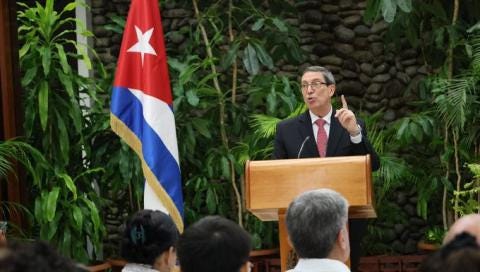Cuba’s alleged sponsorship of terrorism
The standard rhetoric against bogus lists obscures Cuba’s true achievement
On September 11, 2024, thirty-five former presidents and prime ministers of the world (twenty-six from Latin America and the Caribbean, two from Europe, five from Africa, and two from Asia) emitted an open letter to U.S. President Joseph Biden requesting that Cuba be removed from the list of State Sponsors of Terrorism. The former heads of state are from Brazil, Argentina, Colombia, Ecuador, Peru, El Salvador, Guatemala, Honduras, Panama, Jamaica, Spain, Ghana, Mozambique, and Malaysia, among others.
The letter praised the easing of sanctions that occurred during the Obama Administration. It noted that normal relations of mutual cooperation should not be blocked when nations have political systems with different ideological inspiration. In fact, they argue, since the founding of the United Nations System and its establishment of the principles of the sovereignty and self-determination of nations as fundamental pillars of world governance, there has existed no norm stipulat…


